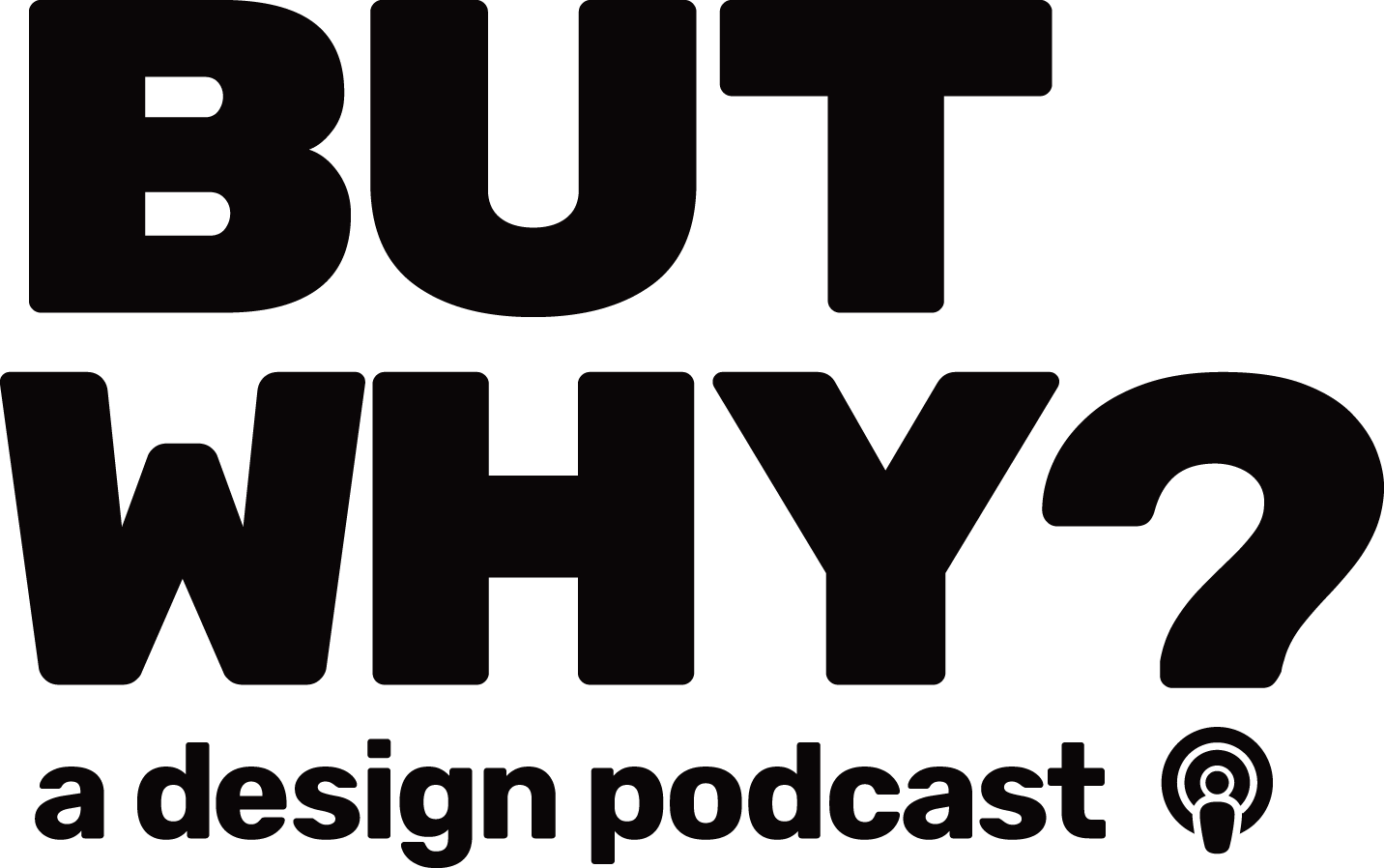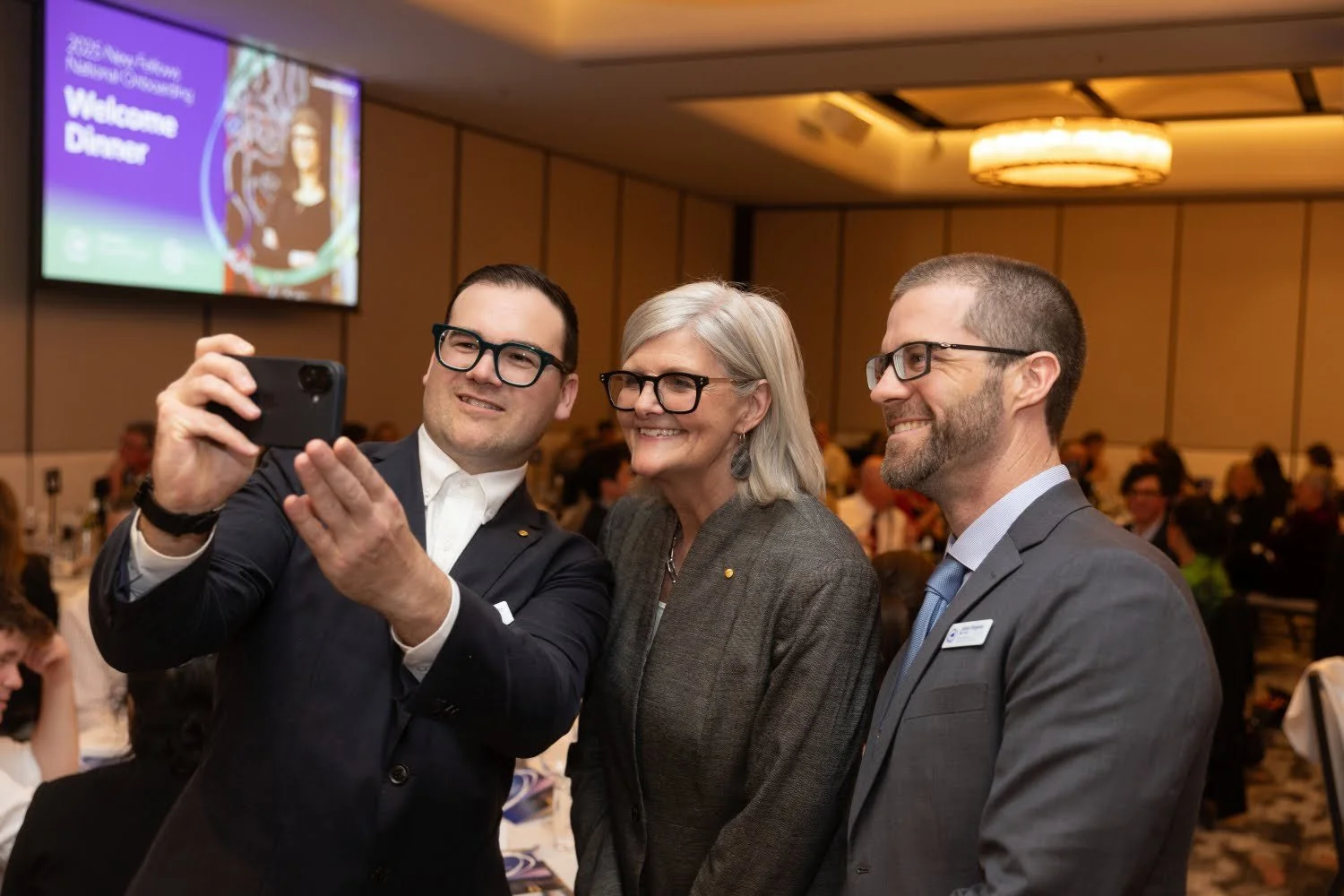Making Space to Explore Why?
After many years of conversations between long-term friends, But Why? A Design Podcast was launched. Hosted by Eugene Hooks of platFORMed and Stirling Fletcher of Wasted By Design, it began with an idea to write a book. One with many chapters shaped by shared frustrations and a belief that design holds power and therefore responsibility.
What has evolved is less pen and more mic. Eugene and Stirling chose the podcast format as a more productive way to invite contribution from design purveyors, leaders and change-makers, experts in their respective fields. The conversations are not scripted, polished or performative. They are honest, exploratory and occasionally uncomfortable.
The podcast explores design responsibility, circularity, materials, systems, culture, leadership and legacy. It looks beneath the surface, into the trade-offs that rarely make the case study and the moments where good intent meets real-world complexity. Some episodes are interviews. Others are reflections. All are anchored in the belief that better questions lead to better outcomes.
But Why? A Design Podcast is for designers and non-designers alike. It invites curiosity and reflection.
This QR Code is an open invitation.
To join us on this journey. To question norms, challenge assumptions and for us all to continue learning.
For more information on Stirling check out Wasted by Design
Logo by AF Creative
A Purposeful Outcome
platFORMed engaged to help deliver a purposeful workplace.
P25 represents the collective effort of a visionary client, an integrated consultant team, and skilled contractors, all working together with shared purpose. The goal was to transform a redundant large-format hospitality site into a workplace that challenged industry norms, to demonstrate how commercial environments can perform better for people, place, and planet.
Engaged to work alongside an expert team of consultants, platFORMed developed a Specification Accountability Framework to help deliver outcomes in alignment with select, client developed project principles. The framework informed design, product selection, materiality and construction decisions while providing the structure to translate intent into practice. It also enabled the measurement, tracking, verification and integrity of stakeholder contributions.
Our approach and belief are that true sustainability is measured not only by environmental performance but also by the health, dignity, and connection of the people who create and occupy the space. The project became a catalyst for exploring how circular design principles and human wellbeing can co-exist at scale, and how collaboration across disciplines can deliver measurable impact. While formal built-form environmental certifications were not pursued, the result surpassed the expectations of such systems in several areas.
We believe projects hold power and we treated our role as a responsibility to meaningfully influence how suppliers, contractors, and processes operate, while strengthening the capability of local industry. Circularity, flexibility, and future value were prioritised, with design for disassembly and reusability embedded in the specification process. Project-wide efforts enabled an outcome that will endure well beyond the initial lease term while accommodating future organisational change. This approach challenges two long-standing causes of industry waste - premature strip-outs and the mismanagement of resource value.
Project highlights include:
1.5 tonnes of adhesives were avoided in joinery, flooring and acoustic treatments. This is equivalent to roughly one tube of traditional adhesives per square meter. This directly improved air quality but also enables better change and end-of life outcomes, by accommodating material separation in the future.
Over 250 tonnes of product are covered under supplier maintenance and stewardship agreements that transfer to the landlord at the end of the lease. This captures supplier responsibility and (coupled with intelligent specification) sets up adaptability and future reuse.
Product packaging was a key focus. We sought to influence suppliers to minimise packaging material not actively addressed in Australia. 542kgs of plastic was eliminated by one supplier alone.
90% resource recovery was achieved during construction. Additional material value was retained through influencing demolition in advance of our site possession. We retained furniture, architectural elements and infrastructure destined for landfill.
Over $10,000 was raised for charity through the internal sale of redundant furniture retained from former food court.
More than 1,600 plants were integrated throughout the workplace, including 800 reused from the previous office, enhancing biophilia and occupant wellbeing.
12,000 apprentice hours were recorded during construction, embedding industry capability-building and local skills development within the project delivery model.
The success of this workplace was driven by collaboration across every layer of the project. The client’s leadership established a clear vision and guiding principles that set the foundation for success, while consultants, contractors, and suppliers brought those ambitions to life through shared accountability.
For platFORMed, the project reinforced the value of collaboration and the importance of structure in achieving authentic outcomes. When the right systems are in place, every contributor can align their efforts toward a common purpose. At its heart, this project is proof that design, when guided by purpose and delivered through partnership, can create more than a place to work. It can build a legacy of learning, care, and measurable progress for everyone involved.
Acknowledgements of Consultant Team:
BGIS – Facilites Management
BEDROCKmg – Design Manager, Technology Lead, Technology Integration
Dawn Projects – Head Contractor Forth – Services Engineering (electrical, fire, structural)
Iconic Design – Hydraulic Services Engineering
Johnson Group – Independent Commissioning
Link – Mechanical Services Design
O’Brien Harrop - Accessibility
PAPER – Interior Design
PlatFORMed – Sustainability
Property Solve – Project Governance
Resolve Group – Building Certifier
RLB – Quantity Surveyor
Seva Frangos Art – Art Curation
Stantec – Acoustics
Turner Design – Signage, Wayfinding
Winmar Enterprises – Cultural
Xero Fire – Fire Engineer
Photography by Matt Biocich
Churchill Fellowship: Investigating the Enablers of Circular Economies
Each year, the Winston Churchill Trust awards Fellowships to Australians from all walks of life who demonstrate a vision to make a difference both locally and nationally. Established in 1965 as a living memorial to Sir Winston Churchill, the Trust enables ordinary Australians to achieve extraordinary things by travelling abroad to investigate best practice, innovation, and leadership in their chosen fields.
Unlike scholarships or academic awards, a Churchill Fellowship is not about formal study. It is about learning through experience, connecting with global experts, and bringing those insights home to create lasting impact.
Eugene Hooks, Her Excellency Sam Mostyn AC, Governor General & James Pengelley (Fellowship Recipient)
This year, Eugene Hooks, founder of platFORMed, was named a 2025 Churchill Fellowship Recipient. With more than 15 years of experience across design, construction, and sustainability, Eugene has worked at the intersection of creativity, circular thinking, and social impact. His work champions the belief that design and business decisions can and should enhance the wellbeing of people, communities, and the planet.
As a Fellow, Eugene will embark on a global research journey to uncover the enabling conditions that allow circular economies to thrive. His project, titled “To investigate the enabling conditions to successfully embed circular economies in Australia,” will explore what makes circularity work in practice, not just as a concept but as a functioning ecosystem of design, policy, finance, and culture.
Local + Local - Perth Design Week 2025 Event (Advocacy in Action).
Eugene’s research will take him across the United States, the United Kingdom, and Europe, engaging with leaders in circular design, manufacturing, policy, and education. The aim is to identify what empowers these systems to move beyond waste reduction toward regenerative value creation, where materials, resources, and human effort are continuously cycled and renewed.
Australia’s current circularity rate sits at around 4 percent. Through his Fellowship, Eugene hopes to uncover pathways that can shift this balance from isolated initiatives to a connected, scalable model that benefits industries, governments, and communities alike.








